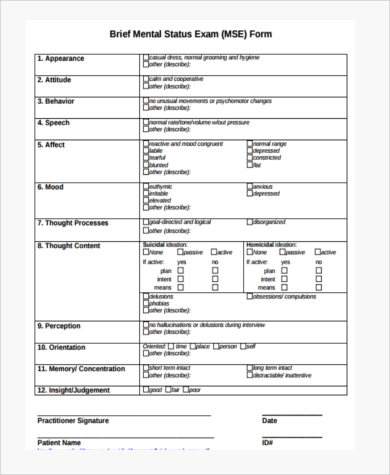When should you take a mental health and wellness day?
What are the 5 signs of mental illness?
It is generally not a good idea to take a mental health day spontaneously. That is, if you wake up in the morning and dread going to work, don't use that feeling as a reason to call in sick. Stress and anxiety are emotional experiences you have when there is something in your world you are trying to avoid.
Such get in touch with can amount to ideal and fair management by your company, and is frequently advantageous to you as well so that you don't have the feeling of being separated or ignored. Such get in touch with should truly be made, nonetheless, only to facilitate any kind of help as well as logistics for you to go back to work- and not to address corrective or efficiency issues. Companies need to do much more to aid workers feel comfy in coming forward when they are experiencing stress-related concerns or mental illness. Anxiety NEEDS TO be a perfectly appropriate reason to require time off job if it is impacting wellbeing.
Even with the most encouraging managers and also associates, lots of people locate it tough to talk about their psychological wellness condition. Some individuals are stressed over burdening others, while some fear letting their emotions reveal. Lots of people think that anxiety as well as anxiety are exclusive issues that shouldn't be reviewed.
What does mental health day mean?
Definition of mental health day : a day that an employee takes off from work in order to relieve stress or renew vitality.

Deutsches Bündnis gegen Depression e.V.
Is it OK to take a mental health day?

It is generally not a good idea to take a mental health day spontaneously. That is, if you wake up in the morning and dread going to work, don't use that feeling as a reason to call in sick. Even if you do manage to keep your mind off work for the day, the source of stress is still going to be there the next morning.
- An anxious failure, which is a loss of the capacity to function in day-to-day life, might last for a few hours or a couple of weeks.
- This can be particularly tough to manage if you additionally have symptoms of clinical depression or anxiety.
- Good, timely treatment can assist decrease the period as well as seriousness of an anxious malfunction.
- It might be time to take a quick break to reset when you really feel like your tension degrees have reached their top.
While one day off may not by itself heal exhaustion, a psychological health and wellness day can absolutely offer you with a much-needed (and also just) break. And that's an embarassment when 40% of American employees locate their jobs difficult, and greater than 30% say their jobs harm their emotional or physical wellness.
An extreme crisis, on the other hand, may be shorter in duration, while recuperation and treatment take a lot longer. The impacts of mental disease can be lengthy or temporary long-term.
Preferably, nowadays would certainly be arranged far enough ahead of time so that you can prepare your work or enlist assistance to guarantee you do not stress and anxiety about what's meant to be a hassle-free day. Yet that's not always feasible, and it's completely ALRIGHT to take an on impulse psychological wellness day if you need to. A mental wellness day is simply a day off that is especially as well as tactically tailored towards tension alleviation.
How often should you take a mental health day?
"On average, it can be good to schedule at least one to two mental health days a quarter," Cirbus says. "Scheduled days off create a routine of dedicated time to good self care which helps maintain stability and sustainability over time." The same is true for children, teens and young adults, Cappana-Hodge says.
Mental disorder, also called psychological health conditions, describes a wide variety of psychological health problems-- disorders that influence your state of mind, believing and also behavior. Examples of mental disorder consist of clinical depression, stress and anxiety conditions, schizophrenia, eating problems and habit forming actions.